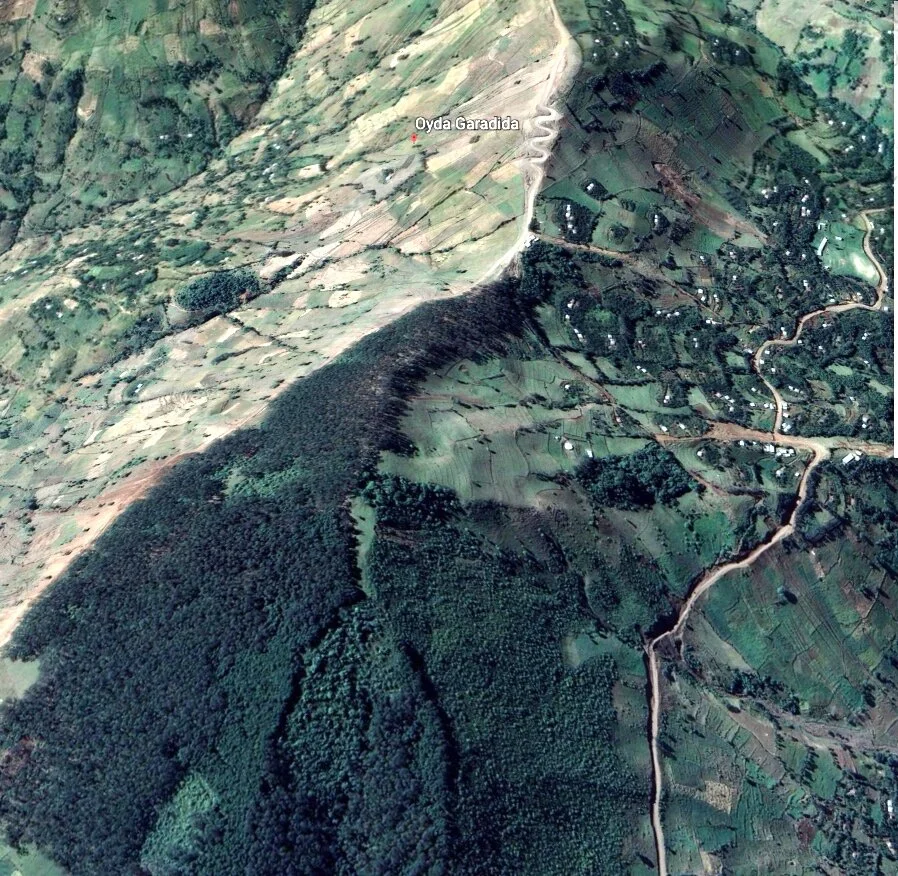INCREASING THE COMPONENTS OF OUR WORK - THIS IS NOT JUST ABOUT WATER, BUT ABOUT SELF-RELIANCE
in spite of the challenging weather conditions, the rural community o f garadida now has access to clean water and has also received covid-19 prevention training. work will continue for another year to further invest in this small,rural village in southern Ethiopia
In recent years, unpredictable rain has become the norm in much of the Southern Nations, Nationalities, and Peoples’ Region (SNNPR) of southern Ethiopia. Rain used to be limited to the two rainy seasons each year, but this is now not as predictable, with heavy rains also coming at other times throughout the year. As a result, roads can easily be washed out, leaving limited access to these remote communities. This has contributed to many of HOPE’s projects being delayed as materials and staff cannot access the village.
However, for rural people who rely on farming to grow their own food and to earn needed money, this has posed even greater challenges for food security and economic stability. It has also brought erosion to the steep landscape and has tragically caused landslides, killing local people and wiping out many homes and farms in the surrounding area. In 2020, HOPE moved into a new ward, Oyida, and also increased the components of its project work to address the increased need and concerns of environmental protection and adapting their farming methods to better cope with the uncertain weather.
The environmental protection work includes planting 15,000 tree seedlings and building a dam to channel excess water away from the homes and providing simple irrigation for the farming areas. In addition, training and farm input support is being made available for 150 households. Vegetable seeds and 500 fruit tree saplings are also being provided. In addition, 20 landless households are receiving five bee hives each and the necessary training to initiate a means to earn money.
CLEAN WATER access will be the catalyst to needed improvements & additional agricultural training will provide a more secure future
Women from Garadida have historically walked more than one hour each way to collect from unprotected sources. Most families required this to be done more than two or three times a day so that adequate water is collected for drinking, cooking and washing.
Donations TO THIS PROJECT WERE spent to cover the following components of the project:
- capping one spring and installing a gravity-fed water system
- laying 5.12 km of pipeline from the capped spring to the village to deliver clean water
- building eight water points & seven wash basins in convenient locations in the village
- facilitating the installation of 94 pit latrines, approximately one for each household
- training five local Water Caretakers to repair and maintain the water system (of whom five are women)
- electing 28 Water Association members to manage the water system (again, 50% are women)
- providing basic health education on personal hygiene and sanitation to all 1,176 people of the community, including COVID-19 prevention training
- creating five Self-Help Groups (with 20 women in each SHG, 100 women in total) to learn basic business skills and start to save money, whilst lending money to one another to facilitate small business start-ups to increase family income and female decision-making and leadership in the village
- training of 150 household in farming skills and providing 15kg of vegetable seeds and 500 fruit seedlings, plus 100 beehives for 20 landless households
- the building of a stone dam with 100 gabion boxes, followed by the re-vegetation of the area and the planting of 15,000 trees
The construction of this water system is now complete, while the health education, SHGs, agricultural training and environmental protection efforts will continue for another year, as per the plan developed in conjunction with the local government. This is to allow adequate time for changes in hygiene and sanitation behaviours to be embedded and to fully realise the economic benefits resulting from having access to clean water.












